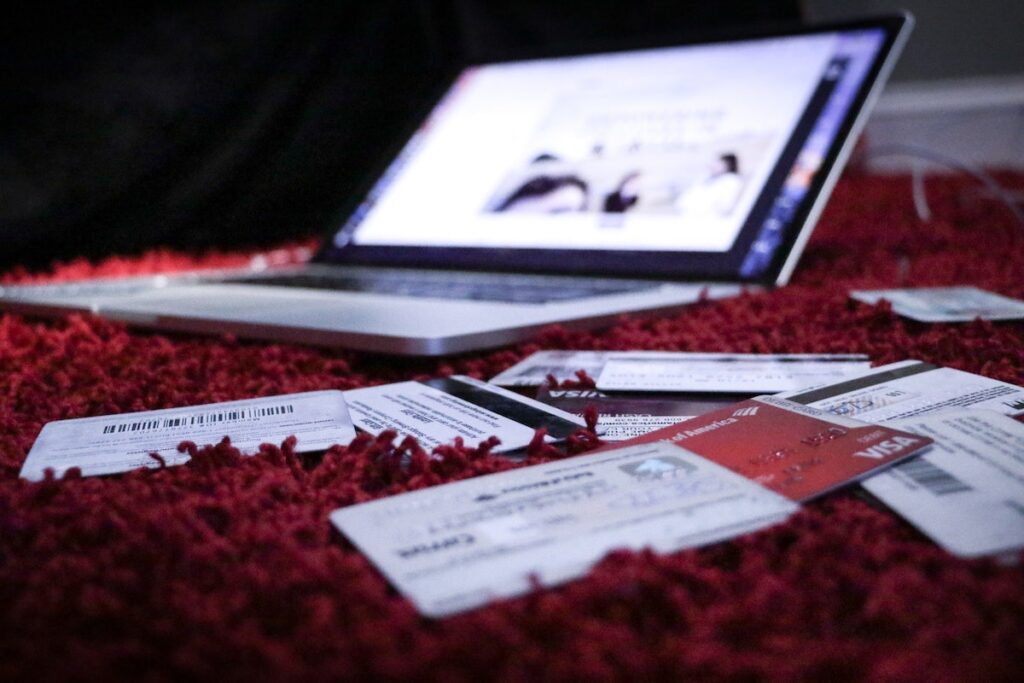Learning how to manage debt is important for staying in control of your finances and building credit. Managing your debt starts before taking out a loan or getting a credit card. Here are three steps for managing your debt:
- Analyze your budget before taking on debt
- Research interest rates and compare them across banks
- Stick to your budget and be aggressive
If you missed these steps, you can take the following steps to understand your debt and take control of your finances:
- Figure out exactly how much you owe—including interest rates and loan terms
- Create your own debt management plan
- Consider debt settlement
Debt Management: Part One

Analyze your budget before taking on debt
You have to know how much debt you can afford, so take time to look at your monthly income and spending. See if there are ways you can cut back on expenses or eliminate some altogether.
If you find that you can’t afford as much debt as you anticipated taking on, start saving monthly. Having some savings will allow you to make a bigger down payment, which will reduce your monthly payment amounts. Having some savings can also make it easier to make monthly payments if you opt out of a down payment.
It’s also important to think about why you’re taking on debt and what the pay-off will be. Is this something that can wait while you save more? Do you need it now?
Research interest rates and compare them across banks
Interest makes you pay more than the initial cost. Your credit score, debt-to-income ratio, and credit history are among the factors that affect the interest rates you can qualify for. Sometimes there are differences across banks, so see what your bank has and look at other options to find the best loan option for you.
Stick to your budget and be aggressive
Once you’ve taken on debt, stick to your monthly payments. If possible, pay more on your loan than your regular monthly payments. While spending your extra cash on debt isn’t fun, it will reduce the total amount of interest you pay and save you money in the long run.
Debt Management: Part Two

In an ideal world, everyone would be in a position to take the first three steps. However, some may not have considered debt amounts, interest rates, and repayment plans before taking on debt. Even the best financial planning can go awry with unexpected circumstances, like job loss, major health issues, and natural disasters.
In these cases, there are still several things that you can do to take control of your finances and get out of debt.
Figure out exactly how much you owe—including interest rates and loan terms
Make a list of all your debt. Include the type of debt (credit card, loan, payday loan), interest rate, and debt amount. The total amount might seem daunting, but this information is key to making smart decisions to get yourself out of debt.
Review the loan terms for each debt. Check to see if there’s a prepayment penalty or another part of the agreement that will affect how you pay off debt.
Depending on the interest rates for your personal loans, it can make sense to consolidate or refinance them by taking out a personal loan. If you can qualify for a lower interest rate by getting a personal loan, that can go a long way in making it easier to pay off your debt faster. More of your monthly payment will be going towards the principle of the loan and less to interest. It also consolidates monthly payments into a single payment, which is convenient.
Create your own debt management plan
Once you know what your debt looks like, the next step is to create a plan to pay it off. Plan to make at least the minimum monthly payment on each of your debts. For larger payments, you can prioritize your debts by interest rate or loan amount.
Prioritizing by interest rate is a good idea because the longer you have that debt, the more interest you’ll have to pay. Once this debt is paid off, you can put the money used for that monthly payment towards your next highest priority debt. This is called the avalanche method.
Prioritizing by debt amounts can be a good idea because starting with the smallest debt can help keep you motivated to continue paying down debt. This strategy is called the snowball method.
When you set your monthly budget, make debt repayment a priority. Setting and sticking to your monthly budget will help you put your debt repayment plan into action.
Alternatively, you can work with a credit counseling or debt consolidation company to develop a debt management plan. While there are some fees associated with debt consolidation companies, it can be helpful to have only one monthly payment and someone to hold you accountable.
Working with a financial advisor can help you figure out ways to manage your finances even after you’re debt-free. Good credit counseling, debt consolidation, and debt settlement companies offer free consultations. Take advantage of these to ask questions and figure out how to best manage your debt and future finances.
Consider debt settlement
Debt settlement companies and lawyers negotiate with creditors to reduce your total amount of debt. Debt settlement companies charge a percentage of the total enrolled debt for their services. The rates are regulated by state governments but typically range between 15 and 25 percent.
Debt settlement companies have their clients set up a new bank account and make monthly contributions to it instead of making monthly payments to creditors. Over time, the account grows and is used to make settlement payments once a deal is reached.
Because debt settlement clients stop making monthly payments, their credit score falls. Once the process is over, it’s important to rebuild your credit. A credit repair service can help you do this.
Additionally, settled debt is marked as “settled” on your credit report instead of paid in full. The forgiven debt is also taxable, so be prepared for when you file taxes.
Debt settlement can be a good option in some circumstances, but it’s important to weigh the cost and effect on credit before choosing settlement.
Ways to Get Out of Debt: Part 3

Despite the fact that credit card debt fell throughout the pandemic, over 340 million Americans still have various types of debt. Paying off your debt is a good place to start if you're looking for debt relief or simply want to save more money.
Debt not only has a negative influence on your finances, but it can also damage your credit score and dampen your confidence. Here are 10 methods for reducing your debt fast.
1. Create a budget
You should create a budget and track your spending to see where your money is going. This will help you figure out where you can cut back so that you can put more money toward paying off your debt. There are a ton of budgeting apps that can help you create a budget without much effort.
2. Live below your means
Be sure to live below your means so that you can put more money toward your debt repayment. This may mean making some lifestyle changes, such as eating out less or scaling back on your entertainment expenses.
3. Find creative ways to curb spending
There are a ton of ways to lower your bills or spending in general. You could get creative with your living situation, transportation, and food budget. See where you can save so that you can put that money toward debt repayment. Money saving apps can also help you curb your spending and find creative ways to save.
4. Decide on a debt repayment strategy
Once you know how much money you can put toward debt repayment each month, you need to decide on a strategy. The two most popular methods are the debt snowball and debt avalanche.
The debt snowball method has you paying off your smallest debt first, while making minimum payments on your other debts. Once the smallest debt is paid off, you roll that payment into the next smallest debt until all debts are paid off.
The debt avalanche method has you paying off your debt with the highest interest rate first while making minimum payments on your other debts. Once the debt with the highest interest rate is paid off, you roll that payment into the next debt with the highest interest rate until all debts are paid off.
5. Participate in a savings or no-spend challenge
A savings or no-spend challenge is a great way to jumpstart your debt repayment. During the challenge, you save as much money as possible or refrain from spending altogether so that you can put that money toward your debt. This can be a great way to get ahead on your payments and make some progress and you can work your way towards saving $1,000.
6. Consider a side hustle
If you need to find ways to make extra money, consider a side hustle. There are tons of ways to make money on the side, whether it’s through freelancing, pet sitting, or becoming a driver for a rideshare company. Any extra income you can bring in can be put toward your debt repayment. The best type of income stream is passive income, so you can earn money while you sleep.
7. Make extra payments
Got a bonus at work? Or a cash windfall? Use it to make an extra debt payment and get ahead on your repayment. Even if you can’t make a huge extra payment, every little bit helps and will shorten the amount of time it takes to pay off your debt.
8. Look into 0% APR credit cards
If you have good credit, you may be able to qualify for a 0% APR credit card. These cards offer a promotional period where you don’t have to pay any interest on your balance. This can be a great way to save money and pay off your debt faster. Just be sure that you make payments on time and in full so that you don’t end up paying interest after the promotional period ends.
9. Apply for a debt consolidation loan
A debt consolidation loan can be a good option if you’re struggling to make payments on your debts. This type of loan allows you to combine all of your debts into one monthly payment at a lower interest rate. This can save you money on interest and help you get out of debt faster.
10. Avoid credit and debt settlement scams
There are a lot of scams out there that prey on people who are in debt. Be sure to avoid any companies that promise to “settle” your debt for pennies on the dollar or guarantee that they can get your interest rates lowered. These are usually scams and can end up costing you more money in the long run.
The Bottom Line
Managing debt starts before you take it on. Plan how much debt you’re going to take on and make sure it fits in your budget. Once you have debt, stick to your plan to pay it off. When you can, make higher monthly payments to lower the total amount of interest paid.
If your debts have piled up, take time to look at each debt and its interest rate. Once you know this information, it will be easier to make a plan to pay it off. Determine which debt is your highest priority—either by size or interest rate—then put extra money towards paying that debt. Once it’s paid, keep doing the same thing until all of your debts are paid off.
Credit counseling services and debt consolidation companies can also help you create a debt management plan and take control of your finances. In some situations, debt settlement companies are advantageous because they negotiate your debt down. However, settlement negatively affects your credit score and shows up on your credit report.
Knowing your options and available resources will help you stay in control of your finances, be smart about debt, and live debt-free.
- Up to $250 Instant overdraft coverage
- With Instant, you can overdraw your Albert Cash account up to your Instant limit
- Costs $14.99 per month after a 30 day free-trial
